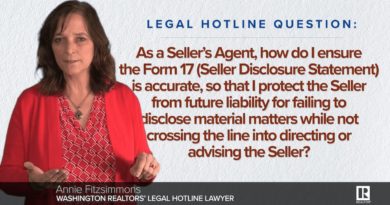What is Goodwill in Business?
If you’re a business owner, company director or shareholder involved in a shareholder dispute — an accurate assessment of the current value of your shares is essential. Aside from other aspects and factors relevant in your dispute, if the shares and business itself is undervalued or overvalued that alone might considerably alter the commercial outcome for you.
Assets that appear on a balance sheet or are easily defined — such as plant or equipment — can be simple to value.
However, many companies possess highly valuable assets that are much harder to quantify in monetary terms.
For example, trademarks or patents are assets that are challenging to put a price on.
Goodwill in business is another such intangible asset.
So, what does goodwill mean in business, and in shareholder litigation?
Read on to find out.
What Does Goodwill Mean in Business?
Goodwill is an intangible asset a business builds up over time through its relationships with other companies, customers, and the public.
In business valuations, shareholder disputes and litigation, goodwill represents the monetary value of a company’s reputation, brand name, and other attributes that contribute to a business’s projected or actual purchase price above its fair market value.
The legal description of business goodwill is well over a century old.
In Inland Revenue Commissioners v Muller & Co’s Margarine Ltd [1901] AC 217 the court confirmed:
“What is goodwill? It is a thing very easy to describe, very difficult to
define. It is the benefit and advantage of the good name, reputation and
connection of a business. It is the attractive force which brings in custom.
It is the one thing which distinguishes an old-established business from a
new business at its first.”
A business that consistently pays its suppliers on time for years can negotiate more favourable prices or payment terms than a new company or one constantly behind on its bills.
Similarly, an established business with a positive reputation and brand recognition will likely attract and retain more customers than one just starting out or a company with a bad name.
Goodwill most commonly comes into play when a company or individual seeks to acquire an established business, and fair market value must be determined prior to sale.
Investors will also typically insist on a valuation that factors in goodwill before putting money into a company that’s actively trading.
In our work shareholders in dispute with a company may seek a valuation to determine the fair market value of their shares.
How To Calculate Goodwill in Business
Calculating the monetary value of a business’s goodwill is an art as much as a science.
In shareholder litigation including unfair prejudice petitions in accordance with sections 994-996 of the Companies Act 2006, we always recommend working closely with an experienced accountant who is able and well-briefed to consider the nuances of the valuation of a business and shares. This includes determining goodwill as an intangible asset.
How goodwill is factored into a business and share valuation depends on the valuation method used.
The three most commonly used valuation methods in England and Wales are:
The type of outcome you are hoping to achieve- i.e. to maximise or minimise share valuation- has an important role in choosing which
One of the shortcomings of an income-based valuation is that it does not account for intangible assets like brand reputation and business goodwill.
Taking an income-based valuation approach to businesses with significant intangible assets is inadvisable.
In asset-based and DCF valuations, three prevalent methods exist for determining the value of business goodwill.
Simple Multiple Approach
Typically used for smaller businesses, the simple multiple approach uses a multiplier of maintainable earnings.
Maintainable earnings using historical and projected revenues, less owners’ salaries and one-off events like sales of land or property.
The goal is to forecast a company’s sustainable profits.
Once this number is determined, an accountant or business valuation will come up with a multiplier — typically between one and five — to represent the company’s intangible assets.
Determining the multiplier is highly subjective and relies on the expertise of the valuation professional for accuracy.
The valuation expert will take numerous factors into account when determining the multiple, such as:
- Business growth
- Scaleability
- Historical and projected profitability
Whole Company Approach
The whole company approach to valuing goodwill is typically used for larger, more complex businesses.
It requires more work than the simple multiple approach but is less of a “blunt instrument” and better suited to sizeable organisations.
Like the simple multiple approach, the whole company method also uses a multiplier.
It is calculated by valuing the business in its entirety and then subtracting its tangible and intangible assets (other than goodwill).
Examples of intangible assets that may be included in a whole company valuation include:
- Brands
- Patents
- Trademarks
- Copyrights
- Licenses
A multiple of maintainable profits, gross of owner or director remuneration, is used. This multiplier is typically called the price/earnings (P/E) ratio.
The company’s net assets are subtracted from the P/E calculation.
Any money left over is determined to be the goodwill value of the business.
In cases where the company’s net asset value is close to or exceeds the sustainable earnings calculations, the goodwill value is low — or even negative.
By contrast, if the surplus after subtracting net assets is high, so is the goodwill value of the business.
Turnover Approach
The turnover approach is used primarily for professional practices — like accounting, architecture, hairdressing, and law firms.
A profit-based approach is less appropriate because these are service-based businesses that charge fees rather than sell goods.
Once again, a multiplier is used.
Typically, the multiple is based on the industry sector average and less reliant on the individual business valuation professional.
For professional practices, a multiplier of fees (rather than profits) is typical and averages 0.5 and 2.5%
Limitations of Goodwill in Business
- Difficult To Value: There is no way to ascertain the goodwill value of a business with 100% accuracy. Even a seasoned business valuation expert using an established method must rely on their experience and a good deal of subjectivity.
- Negative Goodwill: Not all established businesses have goodwill value. Unprofitable businesses or companies in stagnant or shrinking sectors often change hands for less than fair market value. In such cases, negative goodwill is frequently cited as a reason — particularly in a fire sale type acquisition.
- Goodwill Impairment: Once a business is purchased for a valuation price that includes goodwill assets, the acquiring party may be subject to accounting charges of goodwill impairment in future. If the assets comprising the recorded goodwill value at the time of acquisition fail to generate cash flow as projected, a goodwill impairment charge may be applied against the loss in expected revenue. Such losses can be substantial. In the United States, AOL Time Warner reported a goodwill impairment charge of $54.2B in 2002 after the company’s merger.
Frequently Asked Questions
What Is an Example of Goodwill in Business?
Goodwill is an intangible asset that increases (or decreases) the projected or actual acquisition cost of a business above (or below) its fair market value. Examples of intangible assets that can fall under goodwill include brand name and recognition, ability to attract talented employees, favourable (or unfavourable) relationships with customers and suppliers, and business reputation.
Need Advice? Contact Helix Law.
Determining the goodwill value of a business is a slippery proposition — even for experienced business valuation professionals. The scope of an instruction is fundamentally important.
For shareholders involved in a commercial dispute, an accurate assessment of a company’s goodwill can significantly impact negotiations and the final outcome in terms of the value of the shares in dispute.
At Helix Law, our expert commercial litigation team has extensive experience working with shareholders of companies and in group structures, to achieve successful outcomes.
We have years of experience working with valuation professionals to ensure that a company involved in a dispute is valued accurately and fairly.
If you’re a minority shareholder involved in a commercial dispute, contact Helix Law’s expert litigation team today.
We aim to answer all queries within an hour.






